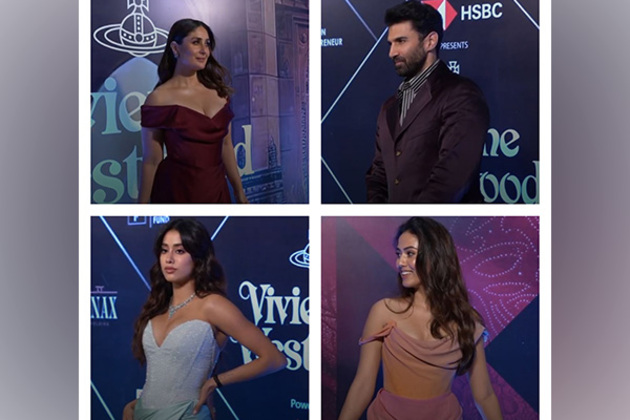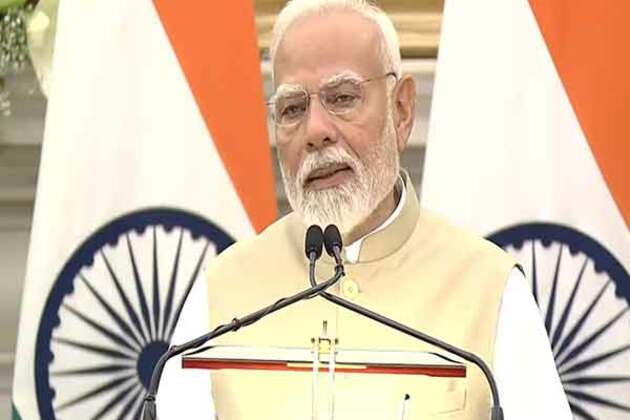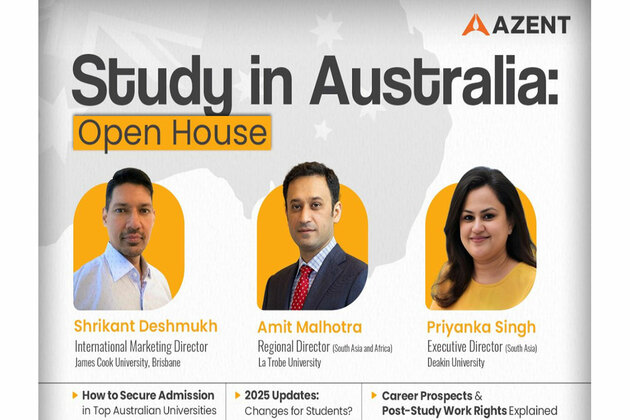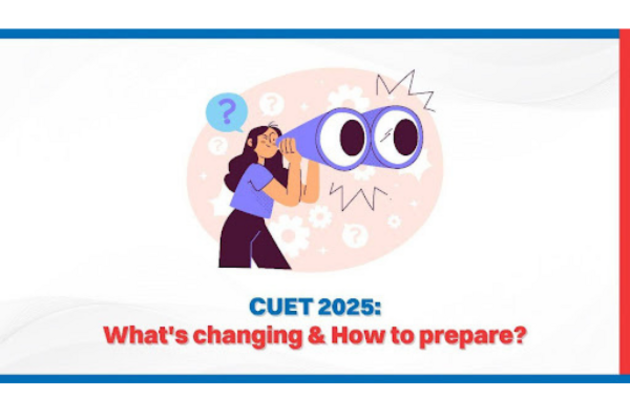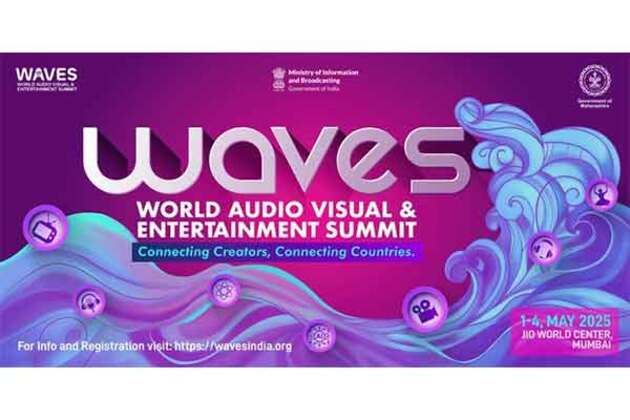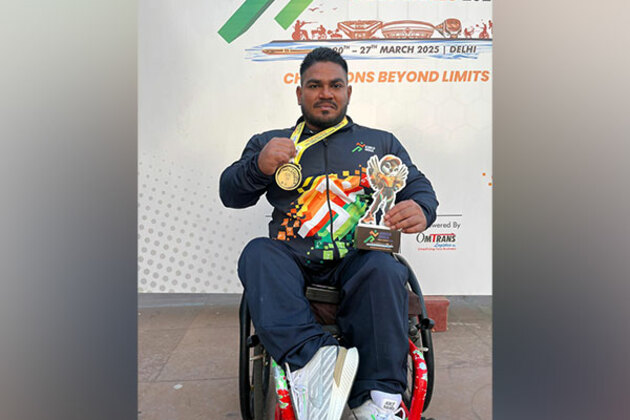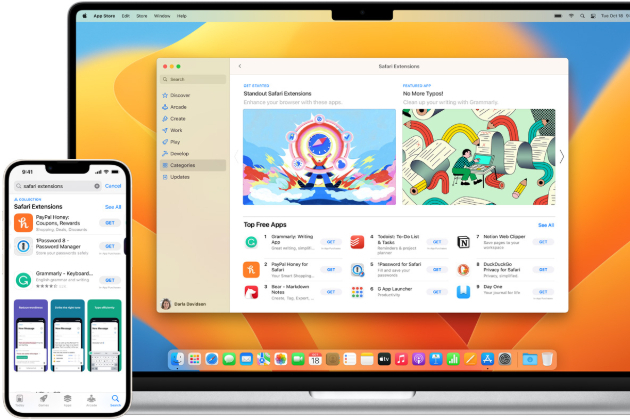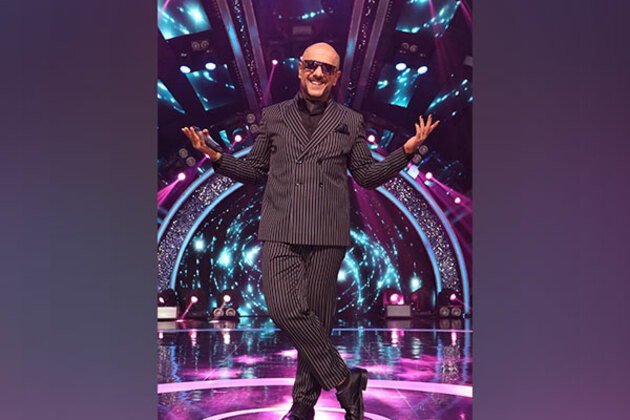Put a finger down if TikTok has made you think you have ADHD
The Conversation
02 Apr 2025, 14:08 GMT+10

Young adults love TikTok. In 2024, the app had nearly 2.5 billion active users, 60 per cent of them under 35 years old. Increasingly, young people are turning to TikTok for advice and information on a range of topics and issues, and that includes mental health information to guide their health-care decisions.
Among those topics is attention-deficit/hyperactivity disorder (ADHD). Content about ADHD is thriving on TikTok, with videos using related hashtags garnering tens of billions of views.
However, navigating and accessing reliable health-care information online can be challenging, especially for people from marginalized communities who often feel like their concerns are dismissed or minimized.
At the University of British Columbia's Promoting Equitable, Affirming Relationships Lab, we are exploring whether that's more helpful or harmful.
ADHD is a neurodevelopmental condition that affects around five to nine per cent of children and around five per cent of adults in Canada.
Common ADHD symptoms include difficulties with inattention (trouble focusing, losing things or making mistakes), hyperactivity (fidgeting or restlessness) and impulsivity (interrupting others or struggling with patience).
There is no single way to have ADHD, and one person's experiences can be very different from some one else. Diagnosis involves a thorough and fairly long evaluation, often including interviews, questionnaires and reports from family members, teachers or co-workers.
Many adults with ADHD who don't fit the archetype of a young boy with hyperactivity can often be left undiagnosed and struggle with their symptoms. TikTok offers a space where people from all backgrounds and walks of life can share their experiences, find community and discuss how ADHD manifests for them and how they manage it.
At the same time, short and engaging content is TikTok's bread and butter. Creators who want to go viral are incentivized to make bold claims.
For example, procrastination can be a sign of ADHD. However, while procrastination is more common in people with ADHD, it is also something that occurs in other mental health conditions like depression, and is something that everyone does at least a little bit from time to time.
But on TikTok, procrastination might be framed as a clear-cut sign of ADHD, making viewers question whether they have it. Some creators also present exaggerated actions that are funny, like walking into things, as being among ADHD symptoms, when clumsy walking is not something that usually happens to people with ADHD.
In our recently published study, we had two clinical psychologists who research and treat ADHD watch the top 100 most popular #ADHD TikToks. They looked at how accurate the information was, according to professional standards, and how helpful they found the videos in teaching people about ADHD.
Many of the videos were incredibly popular, averaging more than half a million views and almost 100,000 likes.
However, we found that 94 per cent of these videos didn't cite any reliable sources. This tracks with the fact that more than half of the claims made in the videos were not backed up by science and did not match the official diagnostic criteria of ADHD, according to the psychologists who evaluated them.
Even more concerning, many of the videos were trying to sell something or asking for money through Venmo or Amazon Wishlists.
Next, we wanted to understand how these videos impact viewers. We recruited 843 undergrads between the ages of 18 and 25 with varying experiences with ADHD (professionally diagnosed, self-diagnosed, or did not have ADHD). Participants watched the videos that the psychologists had rated as the top five and bottom five.
We found that the young adults who watched more TikToks about ADHD were also less critical of them, giving a higher score to the bottom psychologist-rated TikToks.
A high diet of ADHD-related content was also related to the way that users viewed ADHD. The young adults who watched more TikToks about ADHD also estimated that ADHD was almost seven to 10 times more prevalent than it actually is in the general population and felt worse about their own symptoms.
We also asked participants how confident they were about having ADHD three times: Before watching any TikToks; right after watching TikToks; and after watching a short video from a clinical psychologist breaking down what the TikToks got right and wrong.
People with an official ADHD diagnosis stayed confident about their ADHD throughout. However, those who initially didn't think they had ADHD became less sure after watching the TikToks, while those who self-diagnosed became more convinced they had ADHD.
After watching the psychologist video, those without ADHD regained their confidence that they didn't actually have ADHD. However, those who self-diagnosed stayed just as convinced they had ADHD, even after hearing the psychologist's explanation.
We don't want our research to scare away people from discussing their symptoms and finding community online. TikTok can be a great place to express yourself and find others with similar struggles.
Instead, we want to urge people to be more critical of the content they consume and consider that it might not fully represent ADHD.
For example, if you are seeking mental-health information on social media, you can:
1) Check the source. Is the information posted by a reputable organization (for example, medical institutions, universities, research centres, ADHD advocacy groups)?
2) Look for expertise. What are the content creator's credentials? Are they a doctor or a registered clinical psychologist?
3) Crosscheck information. Does the information match up with authoritative information from other sources relying on research like the Centers of Disease Control, World Health Organization or other medical authorities?
4) Be wary of absolutes. Remember, ADHD is complex.
5) Follow the money. Is the content creator trying to sell you something (like supplements that claim to cure ADHD, ADHD coaching, ADHD diagnosis website).
The bottom line is that we need more accurate information about ADHD on social media. But the solution isn't just better content. We need to tackle barriers to health-care access and rebuild trust between young people and mental-health experts.
 Share
Share
 Tweet
Tweet
 Share
Share
 Flip
Flip
 Email
Email
Watch latest videos
Subscribe and Follow
Get a daily dose of International Technology news through our daily email, its complimentary and keeps you fully up to date with world and business news as well.
News RELEASES
Publish news of your business, community or sports group, personnel appointments, major event and more by submitting a news release to International Technology.
More InformationComputers
SectionVivienne Westwood's fashion show in Mumbai: Kareena, Aditya Roy Kapur, Twinkle Khanna mark stylish presence
Mumbai (Maharashtra) [India], April 2 (ANI): Bollywood celebrities on Tuesday night gathered together under one roof to celebrate Vivienne...
"Will emphasise partnership with Chile on critical minerals," says PM Modi
New Delhi [India], April 1 (ANI): Prime Minister Narendra Modi on Tuesday jointly addressed the press with Chile President Gabriel...
Azent Overseas Education Hosts Exclusive Australia Study Open House: A Gateway to Top Universities & Career Success
TP Mumbai (Maharashtra) [India], April 1: Azent Overseas Education, a pioneer in the foreign education consultancy sector, announces...
CUET 2025: What's Changing & How to Prepare?
SMPL New Delhi [India], April 1: The Common University Entrance Test (CUET) 2025 is set to bring major changes that will impact students'...
WAVES Bazaar expands global reach with exclusive showcases and strategic partnerships
New Delhi [India], March 31 (ANI): WAVES Bazaar, the premier global e-marketplace for the Media and Entertainment (M&E) industry, is...
After success in KIPG 2025, son of vegetable vendor, Bihar's Jhandu Kumar eyes worlds, 2028 Paralympics
New Delhi [India], March 30 (ANI): After stamping his authority in the recently concluded Khelo India Para Games (KIPG), Jhandu Kumar...
Internet
SectionApple likely to escape EU fine after browser changes
BRUSSELS, Belgium: Apple appears to have dodged a major regulatory setback in Europe, following recent changes to how users select...
Regulatory win in India paves way for Starlink's expansion
BENGALURU, India: A major regulatory breakthrough in India could mark a turning point for Starlink, Elon Musk's satellite internet...
'Kantara Chapter 1' makers shut down delay rumours, Rishab Shetty's film to release on Oct 2
Mumbai (Maharashtra) [India], April 2 (ANI): The much-awaited prequel to 'Kantara' has been confirmed for release on October 2, 2025....
RCB reigns supreme on Instagram, now the most followed IPL team with over 18M
Bengaluru (Karnataka) [India], April 2 (ANI): Royal Challengers Bengaluru (RCB) has solidified its position as the most followed and...
Put a finger down if TikTok has made you think you have ADHD
Young adults love TikTok. In 2024, the app had nearly 2.5 billion active users, 60 per cent of them under 35 years old. Increasingly,...
I can't support AI's plagiarisation: Singer Vishal Dadlani on viral Studio Ghibli trend photos
Mumbai (Maharashtra) [India], April 2 (ANI): Studio Ghibli trend of creating images in the unique Japanese art form using AI is creating...

